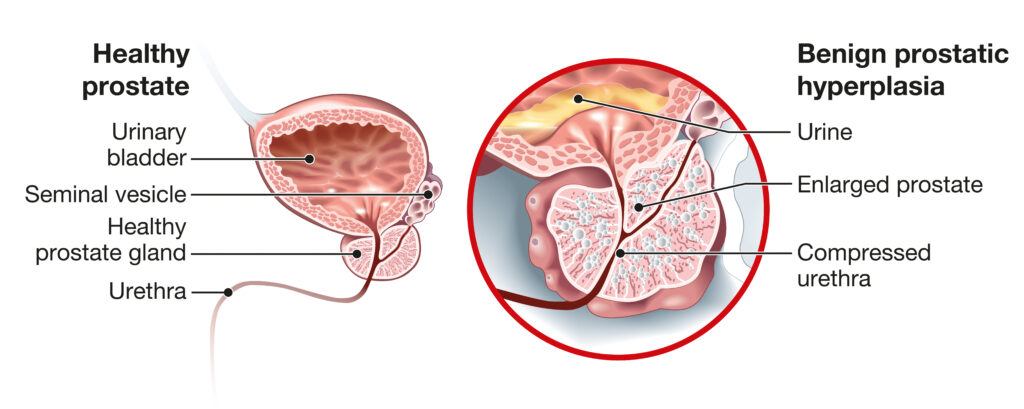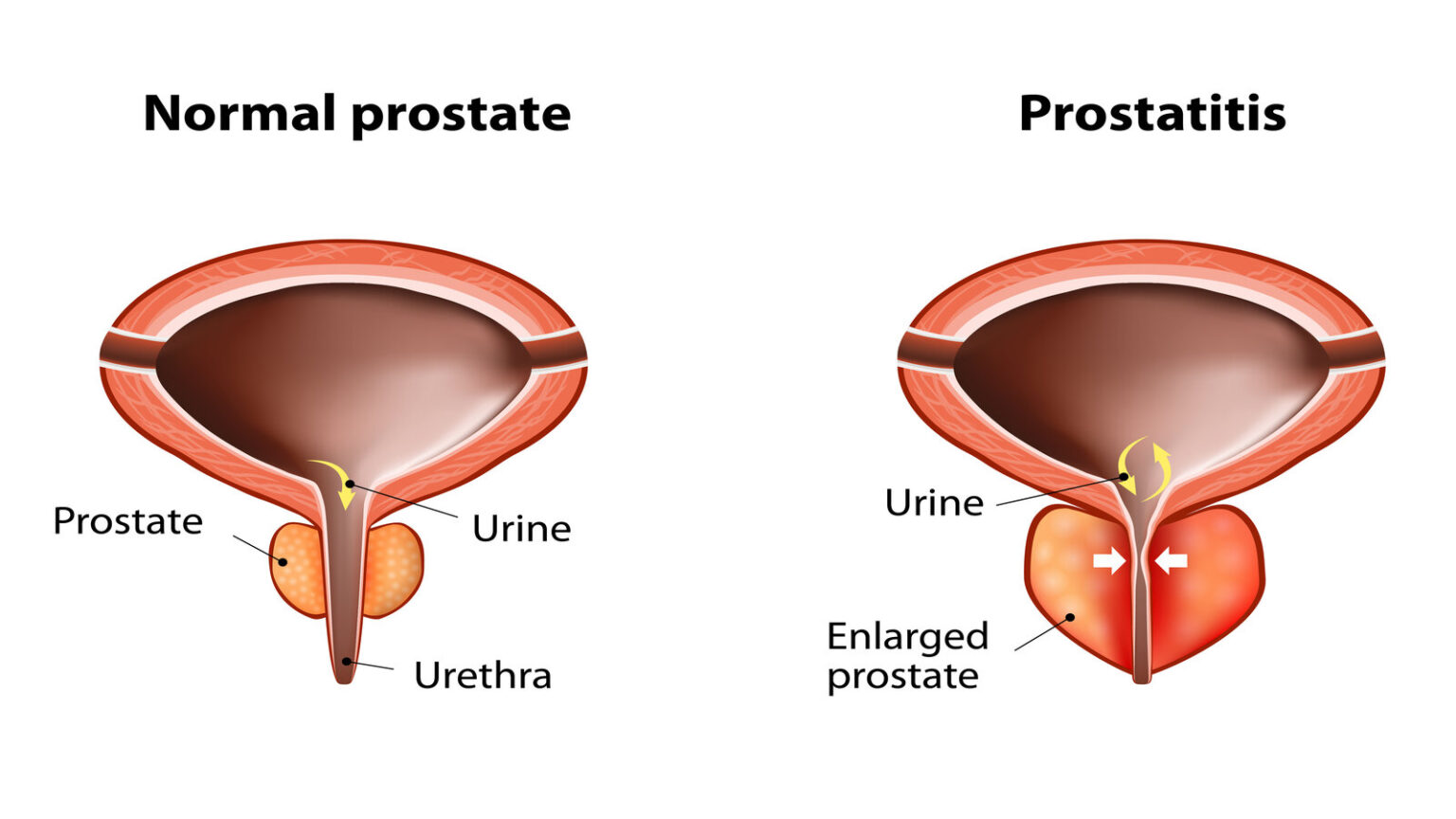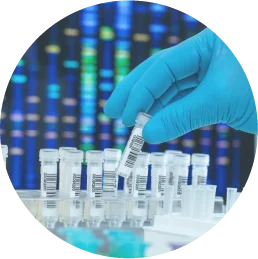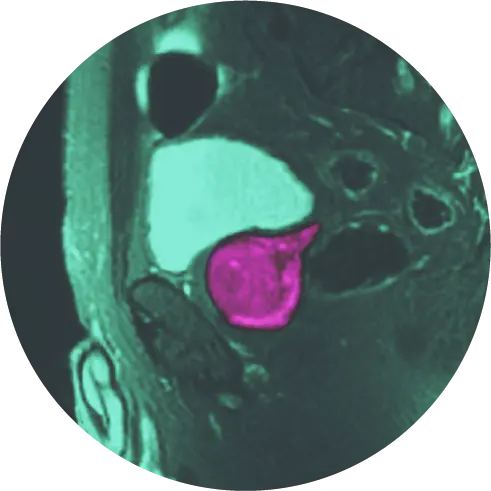Prostate cancer affects 1 in 8 men every year, but it isn’t the only prostate disease men over 40 face. In fact, far more men are diagnosed with benign prostatic hyperplasia, or BPH for short. As many as 14 million men in the United States alone have symptoms, and a quarter of these men will require BPH treatment.
But unlike prostate cancer, BPH isn’t considered deadly.
Still, it can affect a man’s quality of life, causing uncomfortable side effects and often warranting inconvenient changes in day-to-day routines. Left unchecked or untreated, BPH can cause more serious problems like infection and incontinence.
What is BPH?
In young, healthy males, the prostate gland is about the size of a walnut.
BPH is a condition that causes the prostate gland to swell. The condition often causes urinary issues for men due to the location of the prostate, which is just below the bladder and surrounding the urethra. For reasons unknown, the tissue inside the prostate gland begins to grow when a man reaches his mid-forties.
For this condition, the tissue grows inward, putting pressure on the urethra and bladder neck, making it difficult for these structures to function normally carrying urine and semen out of the body.

Who is at Risk for BPH?
Every man is at risk for BPH. The condition is almost inevitable if a man lives long enough. The risk of BPH increases every year after age 40.
Here’s a breakdown of the impact BPH has by age:
- 20% of men in their 50s have it
- 60% of men in their 60s have it
- 70% of men in their 70s have it
- By the age of 85, the likelihood of a man having BPH is 90%1
One quarter of men with BPH in the United States – more than 350,000 men a year – will eventually require some form of treatment, (and some more than once).2
Is BPH Hereditary?
A recent study concluded that for about 7% of men, age isn’t the only risk factor for BPH. Researchers studying a group of men younger than 65 with advanced BPH found a possible genetic link. The men’s male relatives were four times more likely than other men to need BPH surgery at some point in their lives, and their brothers had a sixfold increase in risk.3
What are the Symptoms of BPH?
As the disease advances and the prostate grows, the gland begins to put more and more pressure on the urethra. Depending on the mutated growth pattern of the enlarged cells, the prostate may impede the natural flow of urine.
This may manifest in the following ways:
- Frequent and more urgent need to urinate
- Waking up at night to urinate, also known as nocturia
- Weak urine stream
- Difficulty and straining to empty the bladder
- Delayed onset of urination
- Inconsistent urine flow
What Causes BPH?
Short answer? We don’t know. Like wrinkles and greying hair, it’s something that occurs with age. Like prostate cancer, BPH causes the cells in prostate tissue to malfunction, but in very different ways. BPH is a benign condition whereas prostate cancer is malignant.
One theory on what causes BPH is an anomaly in prostate cell longevity. New cells are created at a normal rate, but the existing ones don’t die off. The exact reason this happens is unknown. With more cells arriving than departing, the prostate gland becomes overpopulated, ultimately causing the squashing of the urethra.
Another cause of BPH is thought to be hormones. As men age, they produce less testosterone, but the prostate becomes more sensitive to it. An increase in estrogen (which also occurs as men age) can cause testosterone to become more powerful, creating an abundance of androgen levels and serving as a catalyst for abnormal growth and function.
What is the Best Way to Treat BPH?
There are traditional procedures such a transurethral resection of the prostate (TURP). However at HALO Diagnostics, we offer our patients minimally invasive procedures such as laser focal therapy (LFT) / focal laser ablation (FLA) or transurethral ultrasound ablation (TULSA-Pro). Our laser focal therapy and TULSA-Pro procedures are offered at HALO’s Indian Wells, CA location and at the Prostate Laser Center in Houston, TX.
Every man is different and so are their prostate concerns. Schedule a consultation with our team of experts today to learn what BPH treatments are right for you.
References
1 https://www.nafc.org/enlarged-prostate/
2 Dr. Patrick Walsh’s Guide to Surviving Prostate Cancer (book)
3 Sanda MG, Beaty TH, Stutzman RE, Childs B, Walsh PC. Genetic susceptibility of benign prostatic hyperplasia. J Urol. 1994 Jul;152(1):115-9. doi: 10.1016/s0022-5347(17)32831-8. PMID: 7515446.




